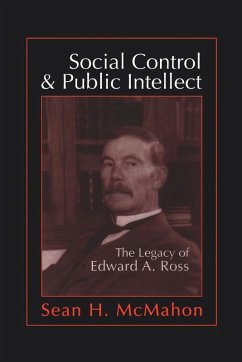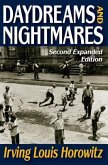As the last presumptive founder of American sociology, Edward Alsworth Ross (1866û1951) was the first to secure its place in public discourse. Originally an economist who strongly criticized monopolies, Ross sought answers to the larger social issues of his day. His theory of social control helped to unify sociology into an independent discipline and elevate social research into an academic necessity. He implored sociologists to explain those social forces that unified people into sustainable groups. This first full analysis of Ross's intellectual legacy uses new sources to explore more broadly the scope of his influence.Throughout his career, Ross remained a controversial figure. Strong critiques of monopolies and immigration led to his dismissal from Stanford in 1900 in a landmark academic freedom case. Never satisfied with qualitative research, Ross traveled the world in search of social changes which he reported back to the American public. A 1910 trip to China yielded profound conclusions on the American economy and on the status of women. As one of the first observers of revolutionary Russia, Ross emerged at once critical of socialism and confident in the American system. Moreover, his articles reached a wide audience to demonstrate the usefulness and scope of American sociology. As Ross gained public favor, however, his academic reputation waned. By the 1920s he was left in the wake of quantitative scholarship. His concept of social control continued to engage academic theorists while new applications emerged in industrial management. After his death, scholars have debated new meanings of social control even as the disciplines of history and sociology have fragmented.In offering this examination of Ross's thought, McMahon draws on new primary materials, including interviews, to recreate the controversies that surrounded his career. The depths of his pursuits have never been so fully explored, and this new look at Ross places him among the giants of American intellectual life. Social Control and Public Intellect will be of interest to sociologists, historians, and American studies specialists.
Hinweis: Dieser Artikel kann nur an eine deutsche Lieferadresse ausgeliefert werden.
Hinweis: Dieser Artikel kann nur an eine deutsche Lieferadresse ausgeliefert werden.








